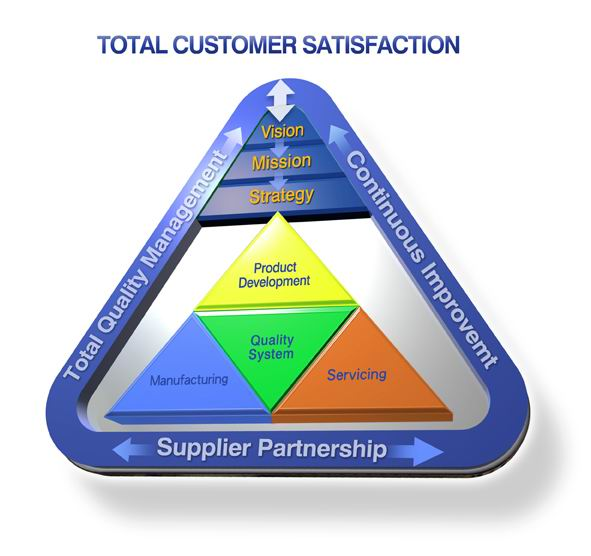Value, satisfaction, and quality
Customer value is difference between the values that the customer achieves from owning and by using a product and the expenses of obtaining the product. Customers do not frequently judge product values and prices accurately or objectively -they act on perceived value.
Customer satisfaction depends on the product's supposed performance in delivering the value relative to the buyer's expectations If performance exceeds expectations, the buyer is pleased (surely a worthy goal of marketing company).
I. Smart companies aim to make happy customers by promising just what they may deliver, then delivering more than they promise.
II. The aim of successful companies nowadays is total customer satisfaction.
III. Customer delight creates an emotional affinity for a service or product, not only a rational preference, and this creates high customer devotion.
IV. Quality has a direct impact on the service or product performance. Quality is defined in terms of customer satisfaction.

The term total quality management (TQM) is schema in which all the company's people are involved in constantly improving the quality of services, products and marketing processes.
I. In narrowest sense, quality may be defined as "freedom from defects."
II. Quality has direct impact on the service or product performance. Quality is specified in terms of customer satisfaction.
III. The basic aim of today's total quality movement has become total customer satisfaction.